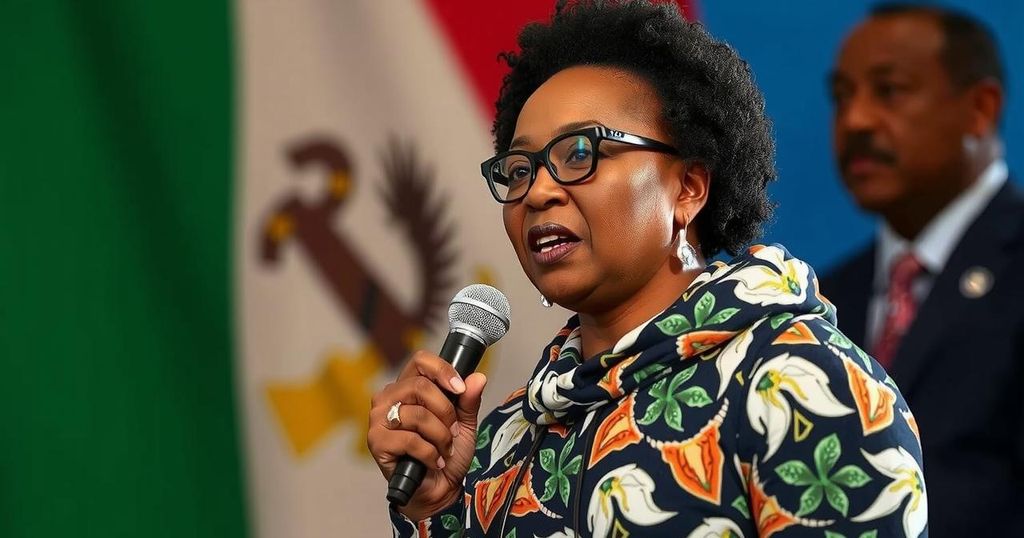Namibia Elects First Female President Amidst Election Controversies

Netumbo Nandi-Ndaitwah has been elected Namibia’s first female president, winning 57% of the votes. While her victory extends Swapo’s long-standing rule, opposition parties contest the results due to election irregularities. Nandi-Ndaitwah’s prior leadership roles contribute to her recognition as a capable leader amidst a changing political climate in southern Africa.
Namibia has made history with the election of its first female president, Netumbo Nandi-Ndaitwah, who secured victory in a recent presidential election, thus continuing the ruling Swapo party’s dominance in the nation since its independence in 1990. Official reports indicate she attained 57% of the vote, surpassing expectations and avoiding a runoff. In her victory speech, Nandi-Ndaitwah affirmed, “The Namibian nation has voted for peace and stability.” As the former vice-president and foreign minister, she is viewed as a seasoned leader not associated with the corruption controversies affecting several party leaders.
Her election follows the demise of President Hage Geingob while in office, further cementing her role in the Swapo legacy. Opposition parties, however, have raised concerns regarding electoral integrity, pointing to technical issues that plagued the election process, including ballot paper shortages that extended voting beyond the initial schedule. They are poised to challenge the validity of these elections in court.
Despite the Swapo party receiving only 53% of the parliamentary vote, a decline from 65% five years ago, Nandi-Ndaitwah’s success signifies a shift in political expectations. Her main opponent, Panduleni Itula, leader of the Independent Patriots for Change (IPC), secured 25.5%, illustrating a more competitive electoral landscape. This election emerges in the context of a broader regional trend where incumbent liberation parties are being increasingly challenged by dissatisfied younger voters, as evidenced by recent electoral shifts in South Africa, Botswana, and Mozambique.
The political landscape in Namibia has been historically dominated by the Swapo party, which led the country to independence from apartheid South Africa in 1990. The recent presidential elections marked a significant milestone not only for the country but also for women’s leadership in Africa. Nandi-Ndaitwah’s elevation to the presidency is noteworthy, especially given the recent political turbulence in Southern Africa, where incumbent parties have faced substantial challenges from opposition groups. Furthermore, her previous roles in government lend her credibility as a leader. However, the opposition’s dissatisfaction with the election process raises concerns about governmental legitimacy and public trust moving forward.
In summary, Netumbo Nandi-Ndaitwah’s historic presidency in Namibia represents a pivotal moment for the nation and its political dynamics. Despite the Swapo party’s continued rule, the emergence of significant opposition voices highlights a shifting political landscape. As Nandi-Ndaitwah embarks on her term, the challenges posed by dissenting parties and public scrutiny warrant careful observation. The election underscores the need for fair governance and the engagement of Namibia’s younger populace in shaping the future of their democracy.
Original Source: www.theguardian.com






